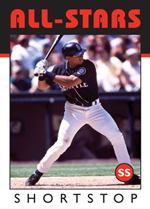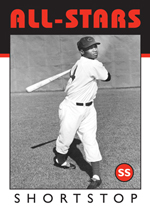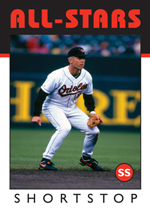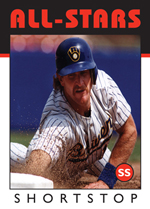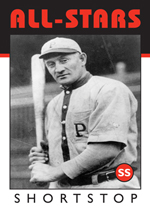
“He was the nearest thing to a perfect
player no matter where his manager chose to play him.”
- John McGraw
Honus Wagner
(1897-1917)
The Flying Dutchman
Since he retired over 90 years ago, Honus Wagner has been regarded as the greatest shortstop of all time and one of the five or six greatest players ever. Contemporaries ranked him ahead of the legendary Ty Cobb. Wagner was the complete player package with no weakness. He was one of the first five players inducted into the Hall of Fame.
Wagner batted over .300 in seventeen consecutive seasons, winning eight batting titles. He was a brilliant base runner and his defense was nothing short of spectacular, especially when one considers the very small gloves used by the players. Despite being somewhat bowlegged, bulky and possessing long arms, Wagner was easily one of the fastest players – he finished his career with over 700 stolen bases.
When he retired in 1917, he held the National League records for career
hits, doubles, triples, runs, runs batted in, stolen bases and games
played. He played almost his entire career for the Pittsburgh Pirates,
leading them to two World Series appearances (including the very first
World Series in 1903), winning it all in 1909.
